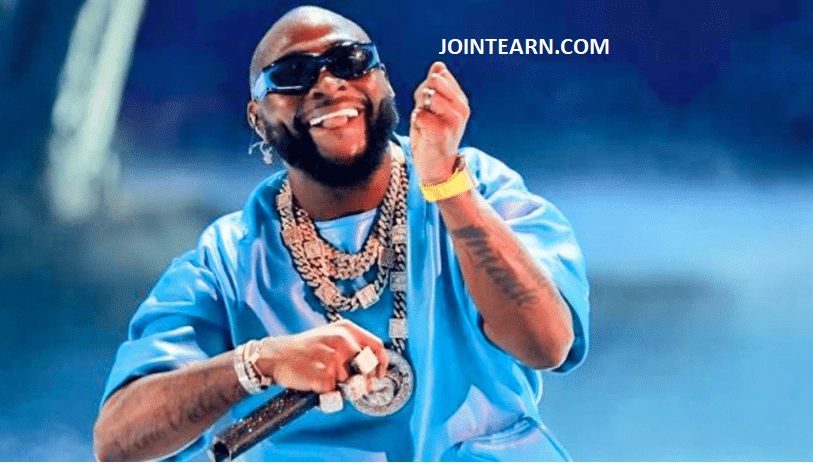Popular Nigerian comedian and activist, Mr Macaroni, has caused a stir on social media with his recent comments criticizing former EndSARS protesters who he claims have “kissed the asses” of politicians. In a series of bold posts shared across his social media platforms, Mr Macaroni, whose real name is Debo Adedayo, expressed his discontent with individuals who, according to him, have abandoned the core principles of the EndSARS movement in exchange for political gain and favors.
The EndSARS movement, which gained global attention in 2020, was a massive protest against police brutality, specifically the notorious Special Anti-Robbery Squad (SARS) in Nigeria. It was a momentous moment for Nigerian youth, who were united in their fight against injustice. The protests were largely peaceful, and many young Nigerians were hopeful that the demonstrations would lead to significant change in the country’s policing system and overall governance.
However, in recent times, there have been increasing concerns among Nigerians, including Mr Macaroni, that some former protesters have compromised their integrity and allowed themselves to be co-opted by the very politicians they once denounced. This shift has raised a lot of questions about the true motivations behind the EndSARS movement and whether it was ever about creating real change, or if it was simply a momentary outcry that lacked sustainability.
Mr Macaroni’s Outrage
In a tweet that sparked widespread debate, Mr Macaroni vented his frustration, calling out what he described as “opportunistic” behavior by some of his former comrades in the movement. He accused these individuals of aligning themselves with politicians who had once been targets of the protests. He described this behavior as “disgraceful” and a betrayal of the ideals that drove the EndSARS protests in the first place.
“It is disgraceful to see people who once fought for justice now begging for positions, sitting with the same politicians they condemned. You were once our voice, but now you are kissing their asses for contracts and favors. What happened to standing for the people?” Mr Macaroni wrote on his Twitter account.
The comedian’s message seemed to resonate with many of his followers, particularly those who felt the political establishment had already co-opted the voices of young Nigerians in the aftermath of the protests. For them, Mr Macaroni’s remarks were a stark reminder of the compromises that often come with power and politics.
The Role of Social Media and Youth Activism
Since the EndSARS movement, social media has continued to play a significant role in Nigerian activism. Platforms like Twitter, Instagram, and Facebook have served as spaces where Nigerians voice their concerns, challenge authority, and organize protests. However, with the growing influence of political figures, especially in an election year, many activists and public figures have found themselves navigating a tricky path between standing up for the truth and securing political backing.
This intersection of politics and activism is precisely what Mr Macaroni has expressed frustration with. He believes that many individuals who were once passionate about the cause have now become tools for political gain. He fears that the EndSARS movement, which was supposed to be a rallying cry for justice and reform, has been diluted by political manipulation.
“For those of us who stood firm and demanded change, it hurts to see people we trusted now part of the system that oppressed us. They’ve traded their voices for temporary crumbs, and it’s shameful,” he added in another post.
Mr Macaroni’s comments echo a growing sentiment among a significant portion of Nigeria’s youth who feel betrayed by political figures and former activists alike. They believe that the struggle for social justice and police reform should remain the focus, rather than allowing personal ambitions to overshadow the cause.
Politicians React to the Backlash
Politicians, especially those in power, have often faced accusations of corruption, insincerity, and complicity in the very issues that sparked the EndSARS protests. The relationship between politicians and activists has always been complex, with many activists criticizing the system while others attempt to work within it to bring about change. However, Mr Macaroni’s comments suggest that the line between activism and political alliances is becoming increasingly blurry, with some former protesters now seen as compromising their moral high ground.
While some politicians have stayed silent on the issue, others have defended the right of individuals to engage in political conversations and seek opportunities for change from within the system. They argue that while the EndSARS protests were necessary, there is also a need for engagement with the political establishment to ensure that reforms are implemented.
Nonetheless, many young Nigerians remain skeptical of such arguments, questioning whether working with these politicians will bring the real change they had hoped for, or if it will merely perpetuate the status quo.
The Bigger Picture: A Call for Unity
Mr Macaroni’s outcry is part of a larger conversation about the future of youth activism in Nigeria. The EndSARS movement was one of the most powerful demonstrations of collective youth action in Nigerian history, but the aftermath has been marred by division and disillusionment. With elections looming and the political landscape shifting, there is a growing concern that the young voices that once stood united will be fragmented by the temptations of political power and the allure of personal gain.
For Mr Macaroni, the fight for justice cannot be compromised. He continues to call on Nigerians, especially young people, to remain vigilant and stay true to the values that sparked the EndSARS movement. He believes that true change will only come when people refuse to be swayed by the corrupting influence of politics and remain committed to advocating for the rights of the marginalized.
“We can’t let the system break us. We must stay focused on the struggle for justice, for police reform, for better governance. Let’s not allow personal interests to derail the movement,” he said in a closing post.
As the debate rages on, it remains to be seen whether the EndSARS movement will regain its original momentum or whether it will become another chapter in Nigeria’s complex political history. One thing is clear, however: the future of Nigerian youth activism will depend on their ability to stay true to the principles of justice and equality, no matter how tempting the political system may seem.
In a rapidly changing political landscape, Mr Macaroni’s call for integrity serves as a timely reminder that activism should never be sacrificed for personal gain.












